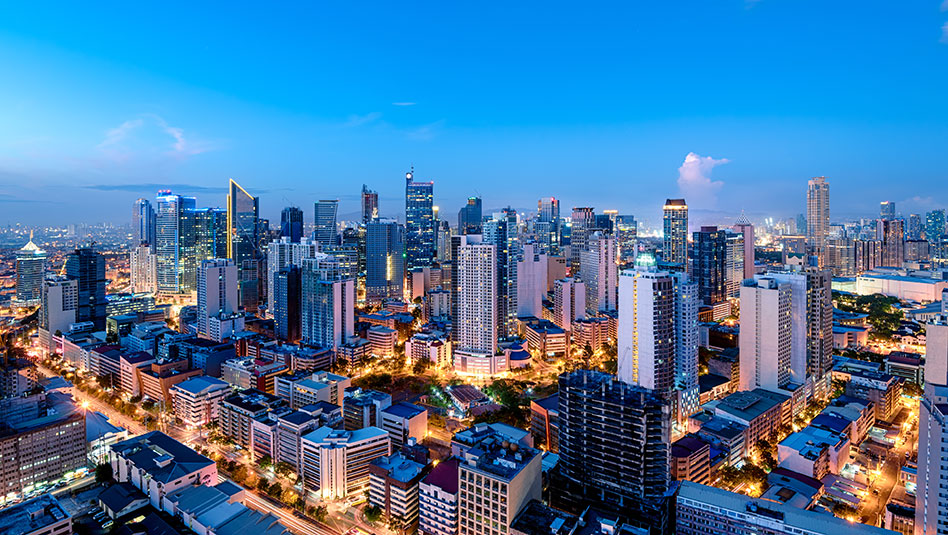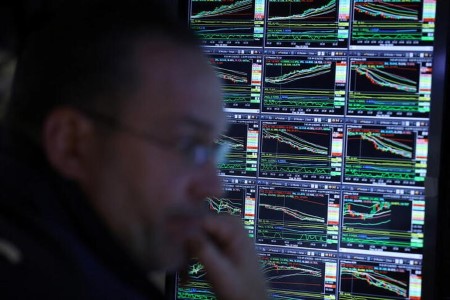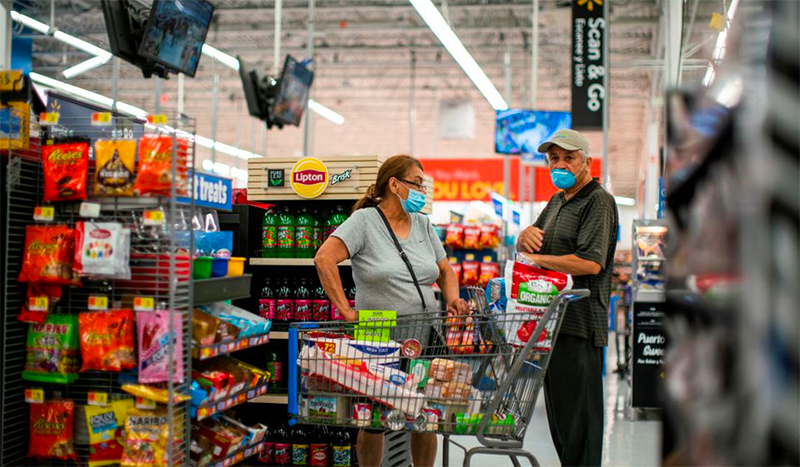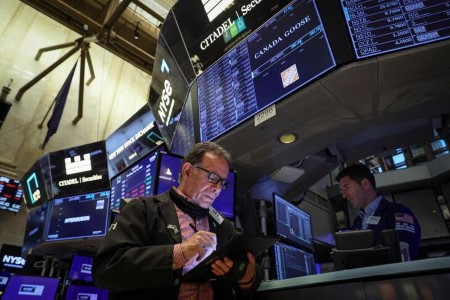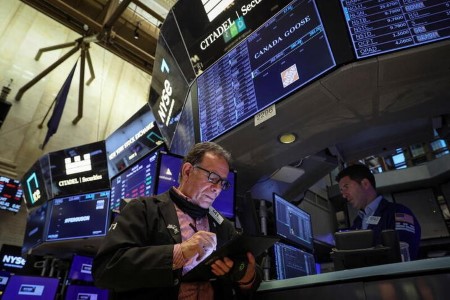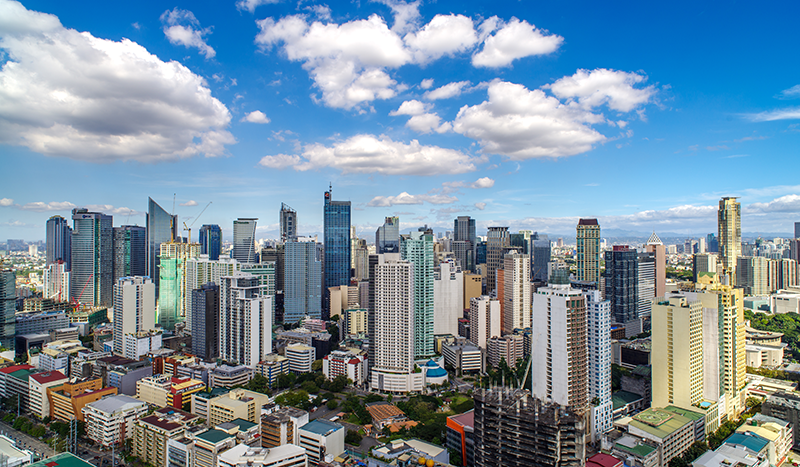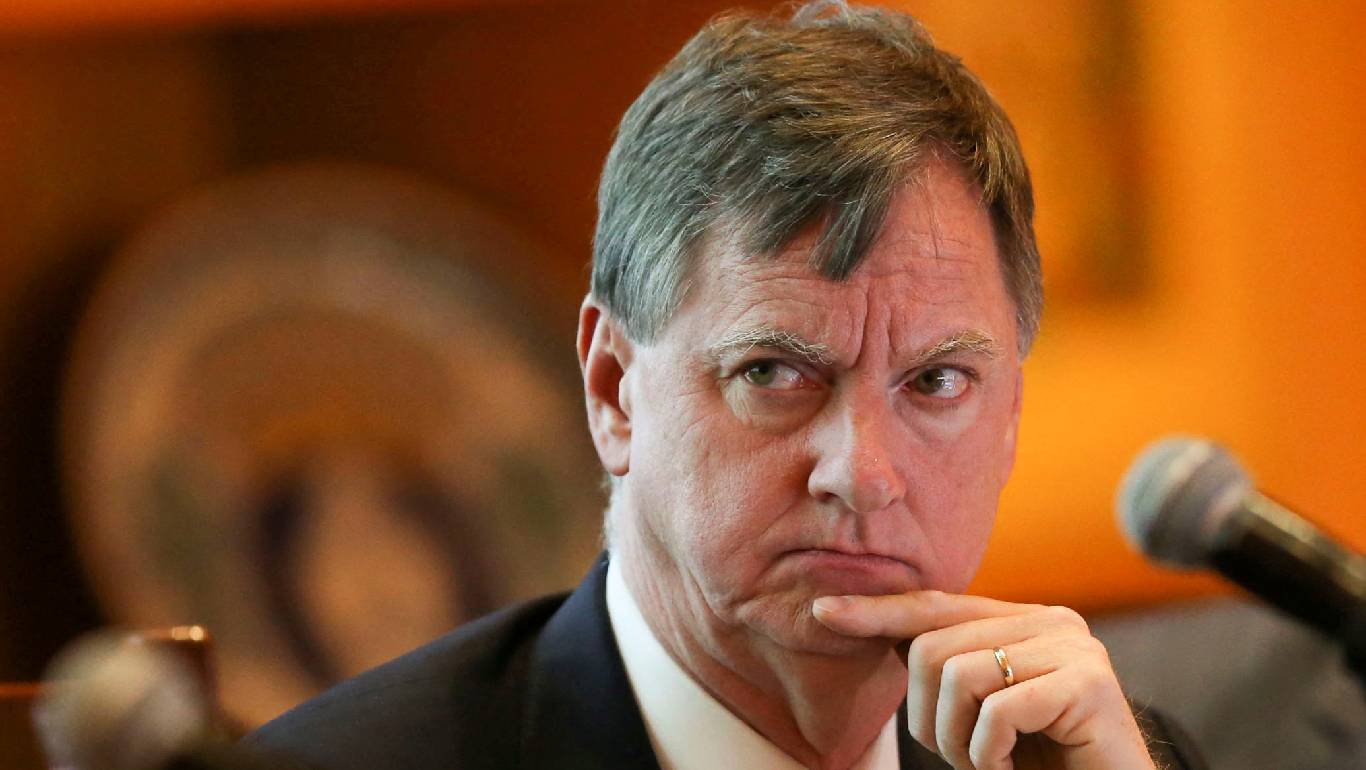May 19 (Reuters) – The S&P 500 and the Dow extended losses on Thursday as Cisco Systems slumped after it gave a dismal outlook, while investors fretted over the impact of surging inflation on economic growth and corporate earnings.
Shares of the networking gear maker Cisco Systems Inc. (CSCO) slumped 12.7% as it lowered 2022 revenue growth outlook, taking a hit from Russia exit as well as component shortage due to China lockdowns.
Kohl’s Corp. (KSS) slipped 1.1% after the department store chain cut its full-year profit forecast, the latest US retailer to flag a hit from four-decades high inflation.
The S&P consumer staples index .SPLRCS fell 1.9% to hit a seven-month low and was the biggest decliner among the 11 major sectors as retail firms face the brunt of rising prices hurting the purchasing power of US consumers.
“The consumer component is now starting to weaken, which bolsters the perspective that we are indeed heading into a recession,” said Randy Frederick, managing director of trading and derivatives for Charles Schwab in Austin, Texas.
Consumer spending accounts for more than two-thirds of US economic activity.
In the previous session, the S&P 500 and the Nasdaq closed down more than 4% as growth stocks sank and retailer Target Corp. (TGT) posted weak results.
The benchmark index is down 18.6% from its record close on Jan. 3 and a close below 20% will confirm bear market territory, joining its tech-heavy peer Nasdaq.
Rate-sensitive growth have led the selloff this year as investors adjust to tightening financial conditions with the US Federal Reserve raising rates.
“The central worry facing investors right now is how the Federal Reserve will or will not be able to tame inflation without causing a recession,” Ryan Belanger, managing principal and founder of Claro Advisors said in a note.
“Investors should become accustomed to significant downside and upside moves in stocks, which is common during times of tremendous uncertainty.”
Goldman Sachs strategists predicted a 35% chance of the US economy entering a recession in the next two years, while Wells Fargo Investment Institute expects a mild US recession at the end of 2022 and early 2023.
The Labor Department’s report showed weekly jobless claims unexpectedly rose last week, while a separate data from the Philadelphia Fed showed its business conditions index dropped to a reading of 2.6 in May from 17.6 in April.
At 10:08 a.m. ET, the Dow Jones Industrial Average .DJI fell 0.89% to 31,211.38 and the S&P 500 dropped 0.42% to 3,907.16.
The battered Nasdaq Composite, however, edged 0.26% higher to 11,447.30, boosted by megacap tech and growth shares such as Alphabet Inc. (GOOGL), Microsoft Corp. (MSFT) and Amazon.com (AMZN).
The CBOE volatility index, also known as Wall Street’s fear gauge, rose to 31.57 points, its highest since May 12.
Canada Goose Holdings Inc. (GOOS) jumped 5.3% after it forecast upbeat annual earnings, encouraged by strong demand for its luxury parkas and jackets.
Declining issues outnumbered advancers for a 1.23-to-1 ratio on the NYSE. Advancing issues outnumbered decliners by a 1.08-to-1 ratio on the Nasdaq.
The S&P index recorded one new 52-week high and 42 new lows, while the Nasdaq recorded four new highs and 257 new lows.
(Reporting by Devik Jain and Amruta Khandekar in Bengaluru; Editing by Shounak Dasgupta, Sriraj Kalluvila and Arun Koyyur)






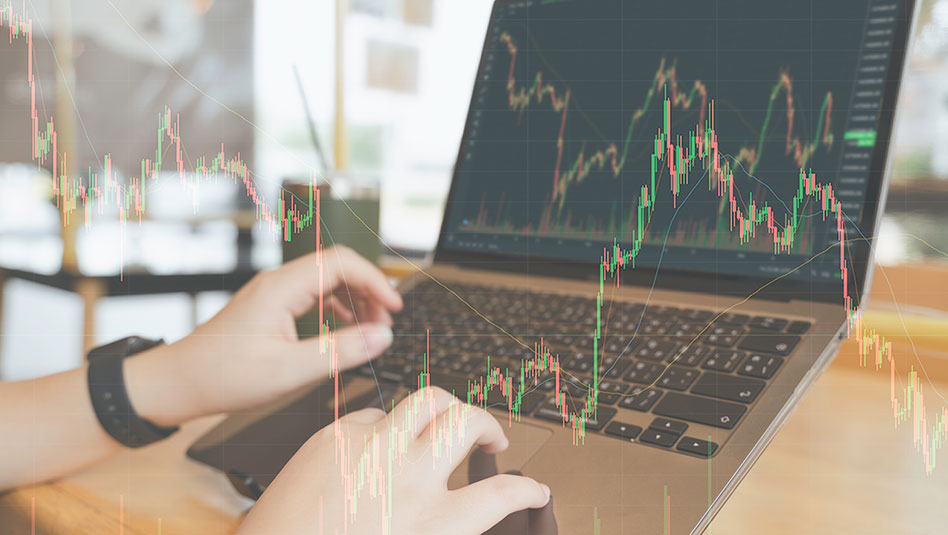
 DOWNLOAD
DOWNLOAD
